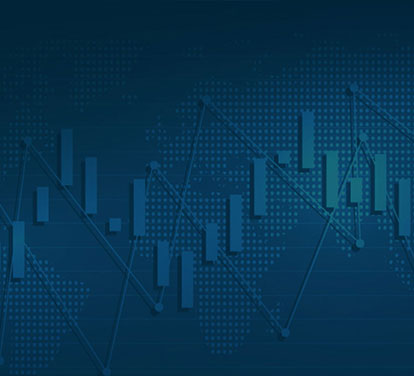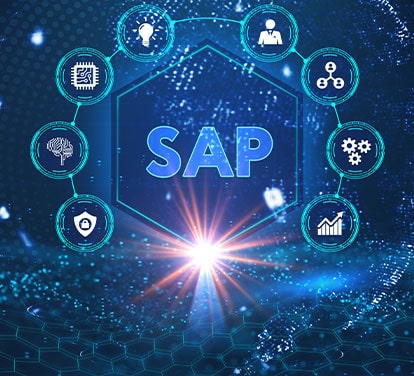It’s probably fair to say that pre-pandemic, the average consumer thought very little about supply chains. That is until store shelves that used to stock toilet paper and other essential items stayed bare for weeks.
This blog will closely examine supply chains, what they’re supposed to do, why they fail, and how; and when they do, how businesses can respond to make their supply chains more resilient.
A Smooth Supply Chain is Essential to All Businesses
During the height of the pandemic, businesses that could not effectively manage, or perhaps salvage is the better word, their supply chain was soon out of business.
The supply chain is the artery through which everything flows, from businesses to consumers or other companies. A smoothly functioning supply chain means good sleep for managers and better access for us to all that we need, when we need it.
However, supply chains are very complex, especially in an increasingly global economy. Even a chocolate bar relies on innovative supply chain logistics. The term supply chain needs to be more accurate. It’s helpful as a simple simile, but the difficulty inherent in maintaining a high-performing supply chain lies underneath that simplicity.
A Supply Chain Has Many Moving Elements
A supply chain requires coordination between several single firms such as manufacturers, retailers, wholesalers, warehouses, and transporters, etc. The new age supply chain also has multiple tiers. For example, a manufacturer will have many tiers of suppliers, who, in turn, will have their own supply chains and they are all inter-connected. The bigger the supply chain and the more tiers of suppliers it comprises, the more complicated the interactions and coordination between participants are.
A well-coordinated supply chain can increase revenue and lower inventory costs for all participants while improving customer satisfaction. However, rapid communication is the key for coordination, which is possible with the near real-time flow of data between all parties on a continuous basis.
Next level supply chains across the globe are now the rule, not the exception, and they are producing enormous amounts of data. Capturing that data and analyzing it is essential to effective supply chain management.
Manual Processes and Slack in Integration are Communication Barriers Between Suppliers
When suppliers work in silos, interactions occur via phone or email. This inefficiency increases by leaps when it takes over interactions across all the supply chain tiers. Addressing requests could turn into bottlenecks especially when conflicts of interest arise between tiers of suppliers.
Customers generate the demand in B2C and B2B scenarios. The organization at the end of the supply chain must respond to that demand, so it wants flexibility when ordering from suppliers. On the other hand, suppliers want stability in terms of predictable order quantities and delivery schedules. The only way to get a reasonable supply and demand equation is through data sharing between suppliers wherein the pipelines are connected.
For instance, a lone purchase order from one supplier to another might have 2,000 items. How and when will the upstream supplier know how much of the purchase order will be filled? From a data standpoint, the quickest and most accurate solution is supplier integration, including supplier master data (name, location, terms of service, operating hours, etc.) and data generated via EDI (purchase orders, invoices, etc.) and banking transactions.
This data flows freely in an integrated supply chain and can be analyzed to make faster, more informed decisions that improve upstream and downstream supply chain performance.
Supply Chain Vendors Connectivity Through the Boomi AtomSphere Platform and the Snowflake CDP
Using the Boomi AtomSphere platform to connect customers and supply chain vendors provides near real-time visibility of supply, demand, inventory levels, shipping notifications, invoicing, and payment status. You are no longer waiting four to seven days to send a purchase order by email and then wait for an acknowledgment only to find that your order will just be partially filled.
Using the Boomi platform to create a well-connected, well-functioning, and integrated supply chain delivers four benefits:
- Improved production and distribution planning
- Optimization of inventory levels
- More accurate forecasting, which can help suppliers maintain enough raw materials to meet expected demand
- Better risk analysis during fluctuations in demand and supply
The Boomi platform can connect to any data source, collect its data, and push it to a fast, scalable data platform for analytics like the Snowflake Data Cloud. The Boomi platform’s EDI capabilities are also precious for supply chain integration.
Boomi B2B/EDI Management offers built-in support for various traditional and modern EDI standards and the ability to define custom standards. It can also accelerate the onboarding of new supply chain partners, reducing onboarding time from weeks to hours and virtually eliminating data errors. Many integration platforms need help to extract and transform EDI data.
Supply Chain Analytics — Descriptive and Predictive
Descriptive analytics tell us what happened with products or suppliers during the last week, month, year, five years, and so on. Predictive analytics uses the outcome of descriptive analytics to make informed predictions about what is likely to happen in the future. This can help determine go-to-market strategies and tactics and the most likely occurrence of supply chain failures.
Without robust supply chain analytics, supply chain management relies on guesswork and the “gut instinct” of executives involved, which isn’t a reliable way to make business decisions.
Originally Published by Boomi. Check Here













